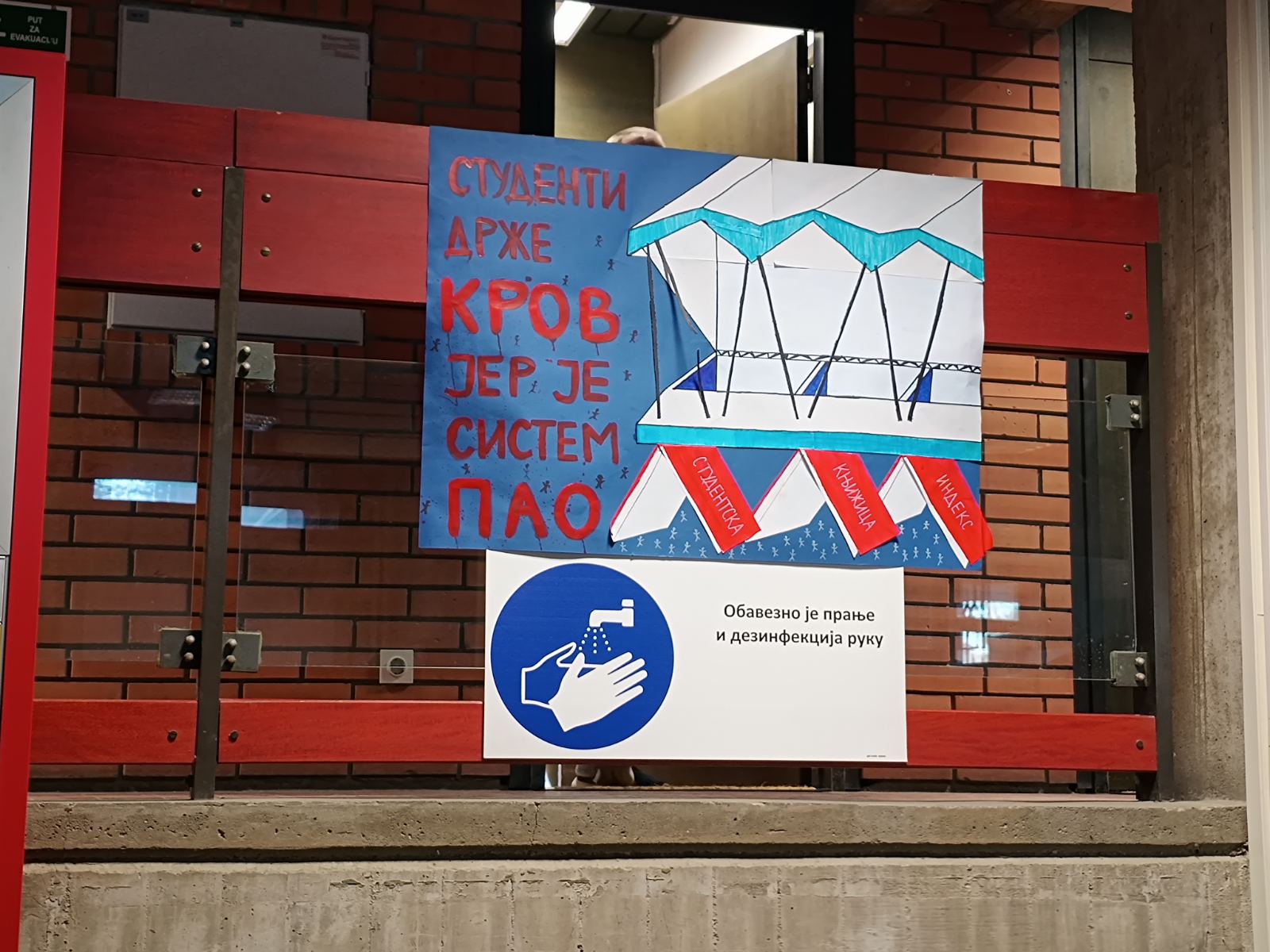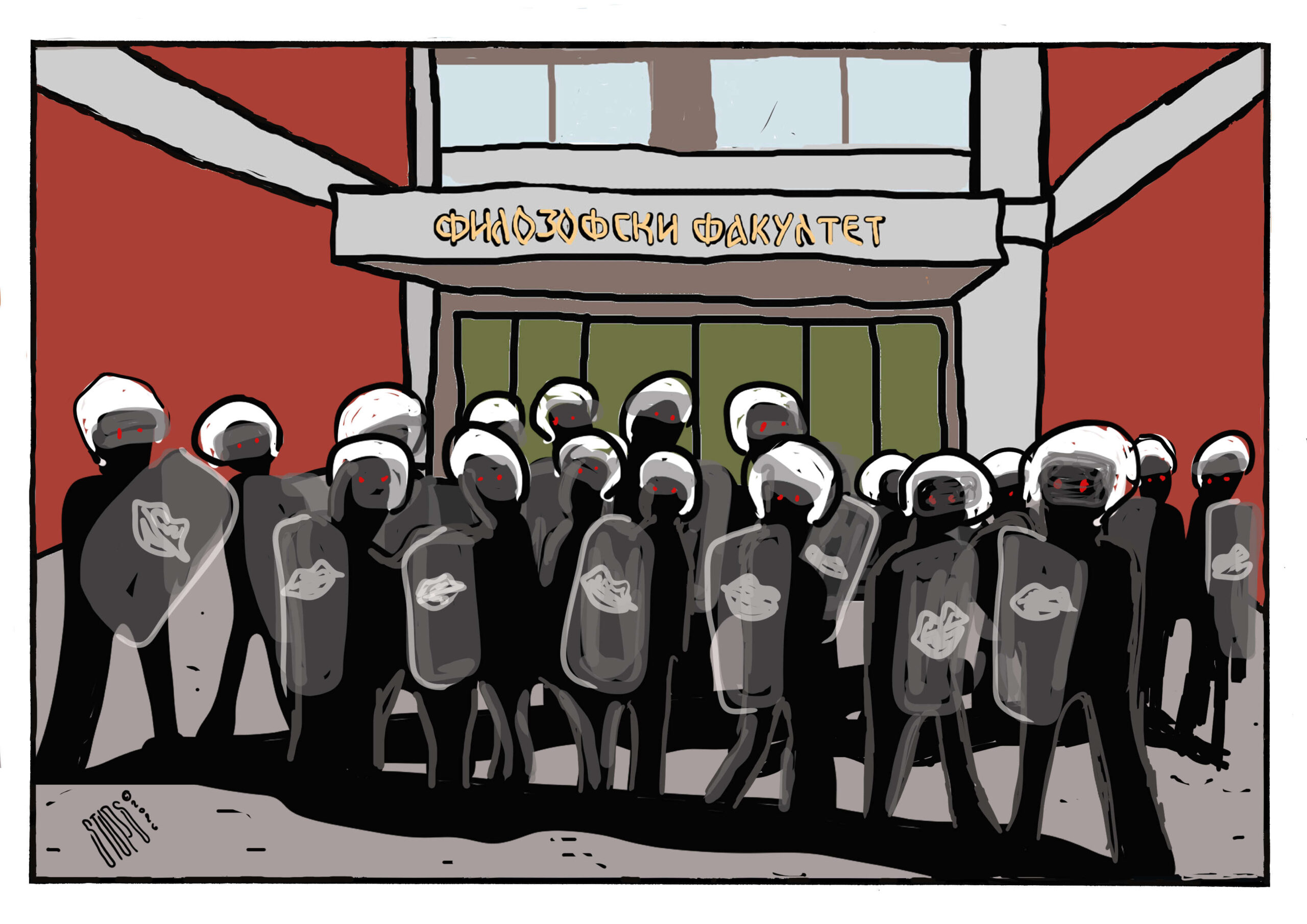
– The Great-Serbia centralist project proved its absolute ineptitude having lost the influence everywhere in the former Yugoslavia and having reduced Serbia practically to the state it had before 1912 plus Vojvodina. Now, it remains on the political powers in Vojvodina to give directions for the European and progressive suggestions regarding the modernization of internal structure of Serbia. In order to realize the above they have to play a more important political role at the level of Serbia. It is however logical that to reach such position will be neither easy nor speedy but if it is clear why this should be done then everything this objective assumes will be easier to endure, – says Nenad Čanak, the leader of the League of Vojvodina Social Democrats in his interview to online magazine Vojvodina.
Is it possible to speak about decentralization of Serbia in the light of the current Constitution?
– No, it is not, and just because of it one of reasons for the unavoidable change of this Constitution is an internal decentralization and democratization of Serbia and the autonomy of Vojvodina, but as well the autonomy of other autonomous provinces that should be created at the level of Serbia that being the only essentially European way that Serbia has in spite of the conservative circles in Belgrade that absolutely don’t accept this. The fact is that sooner or later we shall have a referendum on Serbia’s joining EU. This referendum will inevitably involve also the referendum on the change of the Constitution and it is of the utmost importance for Serbia to clearly profile its position in the Constitution by that time.
To allow the Radicals and DSS to be again the leading parties in the issue of the Constitution while Democratic Party silently agrees to it, leads Serbia to repeat the same. The same means five wars, the economic isolation, 20 years of collapsing. And during these 20 years Serbia has just managed to reach the two thirds of gross national income it had 20 years ago. Therefore, it is clear that going back to old should not be allowed. That’s why the political parties in Vojvodina and political thought in Vojvodina should play a greater role in Serbia and in order to accomplish this Vojvodina should impose itself on with quality and consistency. Why this hasn’t been done till now – it is not only the question for me to provide answer.
If I got you right the Constitution of Serbia has to be changed at the moment when Serbia comes closer to EU?
– Absolutely. And the perception of reality will have to be changed as well. Because a party like, let’s say, the Serbian Radical Party – that even today promotes the great Serbia, the phantom Republic Srpska Krajina, the borderline Karlobag-Ogulin-Karlovac-Virovitica – should not win nearly 40 percent votes in the society determined to face the reality. And just this evasiveness in facing the truth is what will cost Serbia dearly.
What will happen in case that this trend of centralization continues? Will it deepen the discontent of Vojvodina’s citizens and consequently contribute to strengthen the autonomous option?
– I wouldn’t call it strengthening the autonomous option but rather its creating, because the autonomous option doesn’t essentially exist. The reason to say this is simple. The model of autonomous aspiration as we had in the nineties, in time when a series of autonomous parties was created, ceased to exist due to the very fact that there is no the state frame within such model of autonomy was projected, then abolished and, subsequently, the demands for its restoration revived. Today, 18 years later and four states more, Vojvodina has yet to make a profile of its autonomous option as a part of total decentralization and democratization of Serbia and not on the ruins of defeated Great-Serbia nationalist and centralist project. This is what is now imposed as the task. Therefore, not to establish again no matter which but this is the moment to conceive, to strategically position and thus to create. Because the cynical factography says that Vojvodina has been within Serbia since 2006 and that it has simply had no time to find its role in Serbia being constantly within this or that model of state union. In other words, we are only at the beginning of the beginning. The fact that our struggle as the League of Vojvodina Social Democrats has been going on for already 18 years means nothing. The new start is just before us.
Hypothetically, what if after this pre-term parliamentary election we get the government composed of the Radicals and “populists”?
– We shall find ourselves again in the situation to be isolated, set aside from the European integrations and be forced to continue fighting, to show people in Serbia why it is destructive. To show that it is not the question of inter-party envies and struggle for power, but that it is the question of the way that Serbia will follow. In case of their victory, instead to Europe Serbia will go to isolation, instead of progress Serbia will stagnate, instead of joining the association of independent equal states it will end as a Russian gubernija /province/ hanged on the noose of energetic dependence. Hence, it is on me to say and on citizens to choose the road to be followed.
If the pro-European options prevail can you expect of Mr. Tadić, who until now has repeatedly disappointed the pro-Europe orientated voters, to initiate this time radical reforms without compromise and to lead Serbia towards Europe?
– One shouldn’t forget that every Mr. Tadić’s move was in connection with the current situation in the society and that you cannot expect this position to remain the same before and after the independence of Kosovo, before and after the independence of Monte Negro, etc. And through all these Tadić, as the President of Serbia, passed. Now we have a clear picture: Serbia is what it is, whether one acknowledges it or not, and the story on insisting on the territorial unity is the story more in the domain of diplomatic positioning than the factual everyday political life. I also think that Mr. Tadić now faces a very clear dilemma – to win or not to survive? Because, unfortunately, all problems Serbia hasn’t faced in the past 20 years are now on the table and raises the question from which there is no running away any more.
Do you agree with Pavel Domonji from the Helsinki Committee who says that he is certain that in the 22nd century there will be Serbs but not certain that there will be Serbia if this politics continue?
– Well, I am not either sure that Serbia will leave the 21st century in the state-legal frame as being imagined by the “great national workers”. The more “protectors of Serbia” the smaller and less populated Serbia becomes. The more false patriotism, the less gross national income. And this is the whole story.
(www.magazinvojvodina.com)










 STUPS: Klaster 1
STUPS: Klaster 1